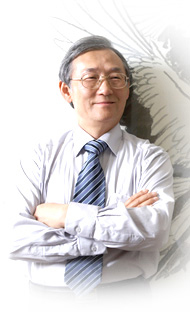Selected Speeches
Dr. Leeserved as the President of SNU from 2006 to 2010. These are selected speeches during his presidency.
Welcoming Address at the 2009 SNU-UT-APRU Joint Conference on Aging (Oct. 20, 2009)
HIT: 15001
Welcome address
Dr. Jang-Moo Lee
President, Seoul National University
October 20, 2009
Hoam Faculty House Conference Center
Distinguished scholars, honored guests, and ladies and gentlemen.
It is a great pleasure and honor for me, as the president of Seoul National University (SNU), to give a welcome address to the Conference on Aging jointly held by SNU, University of Tokyo, and Association of Pacific Rim Universities (APRU). I welcome all of you, who have travelled from around the world to make this conference a memorable academic feast.
First of all, I would like to express my gratitude to the distinguished international panel members, who will deliver the opening lectures:
- Dr. Steven Zarit, professor and the head of Human Development and Family Studies, Pennsylvania State University, United States;
- Dr. Angelique Wei-ming Chan, professor of sociology, National University of Singapore, Singapore; and
- Dr. Hiroko Akiyama, professor, Institute of Gerontology, University of Tokyo, Japan.
In addition, I would like to extend my special welcome to Dr. Kenneth McGillivary, Secretary-General of the APRU, and guests from the APRU.
As all of us are aware, the world is facing a sharp growth of aging populations, and, in particular, Pacific Rim countries have experienced an exponential increase of older populations in the last several decades. Considering that the speed of population aging in this region exceeds that in European nations, I strongly believe that scholars of gerontology and its related fields in the affected countries must come together and discuss what they are facing and will be facing in the future.
This conference is timely and significant also because it aims not only to bring junior and senior experts in the fields in the countries in question to share necessary knowledge of aging but also to identify the problems and provide the solutions for the present and the future. The presenters at the conference will discuss the physical, psychological, and social issues with which older populations must deal as well as interventions and social services that need to be delivered to the local communities within the given social contexts. I have no doubt that the lectures and presentations will be the foundations for researchers in the relevant fields to advance knowledge of aging and to create better policies for the elderly in Pacific Rim countries.
Finally, I would like to express my deepest appreciation for those who have sponsored this conference including members of the Transnational Gerontology and Retirement Research Center and the Institute on Aging at our university, who have made unceasing and tremendous efforts to organize this significant event.
I sincerely believe and know that the conference will serve as a valuable opportunity to provide solutions to not only Pacific Rim countries but also the entire world.
Last but not least, I hope that all of you will enjoy beautiful autumn in Korea during your stay.
Thank you.
Dr. Jang-Moo Lee
President, Seoul National University
October 20, 2009
Hoam Faculty House Conference Center
Distinguished scholars, honored guests, and ladies and gentlemen.
It is a great pleasure and honor for me, as the president of Seoul National University (SNU), to give a welcome address to the Conference on Aging jointly held by SNU, University of Tokyo, and Association of Pacific Rim Universities (APRU). I welcome all of you, who have travelled from around the world to make this conference a memorable academic feast.
First of all, I would like to express my gratitude to the distinguished international panel members, who will deliver the opening lectures:
- Dr. Steven Zarit, professor and the head of Human Development and Family Studies, Pennsylvania State University, United States;
- Dr. Angelique Wei-ming Chan, professor of sociology, National University of Singapore, Singapore; and
- Dr. Hiroko Akiyama, professor, Institute of Gerontology, University of Tokyo, Japan.
In addition, I would like to extend my special welcome to Dr. Kenneth McGillivary, Secretary-General of the APRU, and guests from the APRU.
As all of us are aware, the world is facing a sharp growth of aging populations, and, in particular, Pacific Rim countries have experienced an exponential increase of older populations in the last several decades. Considering that the speed of population aging in this region exceeds that in European nations, I strongly believe that scholars of gerontology and its related fields in the affected countries must come together and discuss what they are facing and will be facing in the future.
This conference is timely and significant also because it aims not only to bring junior and senior experts in the fields in the countries in question to share necessary knowledge of aging but also to identify the problems and provide the solutions for the present and the future. The presenters at the conference will discuss the physical, psychological, and social issues with which older populations must deal as well as interventions and social services that need to be delivered to the local communities within the given social contexts. I have no doubt that the lectures and presentations will be the foundations for researchers in the relevant fields to advance knowledge of aging and to create better policies for the elderly in Pacific Rim countries.
Finally, I would like to express my deepest appreciation for those who have sponsored this conference including members of the Transnational Gerontology and Retirement Research Center and the Institute on Aging at our university, who have made unceasing and tremendous efforts to organize this significant event.
I sincerely believe and know that the conference will serve as a valuable opportunity to provide solutions to not only Pacific Rim countries but also the entire world.
Last but not least, I hope that all of you will enjoy beautiful autumn in Korea during your stay.
Thank you.
